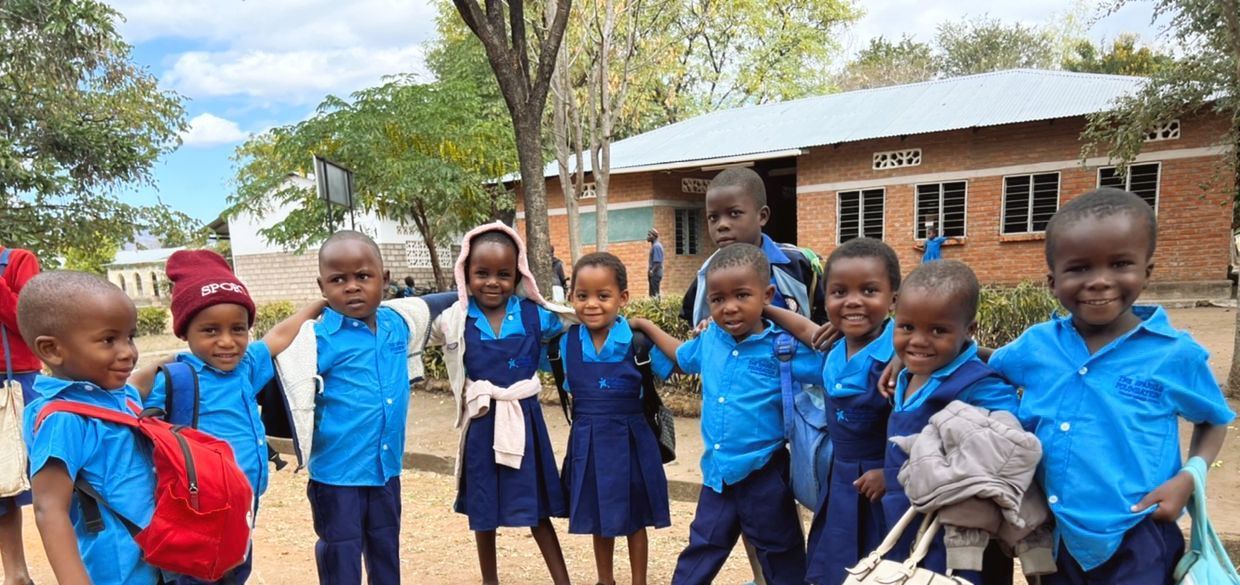Educational Challenges in Malawi: Understanding the Root Causes.
Unveiling the Root Causes of Educational Challenges in Malawi: Sparkle's Comprehensive Steps to Tackle Them.

Malawi, a nation with rich cultural heritage and stunning landscapes, faces significant educational challenges. In 1994 the Malawi government introduced free primary education, this policy led to a dramatic rise in enrolment, however numerous obstacles persist. Today, approximately 5.3 million pupils are currently enrolled marking a 7.2 percent increase from the previous year, highlighting the demand for primary education. Of these students, 49 percent are male, and 51 percent are female. However, only 35 percent of children complete primary school, revealing deep systemic issues. Understanding these root causes is essential to effectively address the barriers impeding the delivery of quality education in Malawi.
Overcrowded Classrooms and Teacher Shortages
One of the most pressing issues is the severe overcrowding of classrooms. In the first grade, the teacher-to-student ratio can be as high as 1:130. This overwhelming number makes it nearly impossible for teachers to provide individual attention to each student, hampering their ability to effectively teach and manage the classroom. Overcrowded classrooms also increase the physical and mental strain on both teachers and students, leading to burnout and a decline in educational quality.
Literacy Rates and Educational Quality
The quality of education in Malawi is further compromised by alarmingly low literacy rates among students. Shockingly, 83 percent of first-grade students are unable to read a single syllable, and 92 percent fail to read a single word. These statistics highlight a critical gap in the foundational literacy skills essential for academic success and lifelong learning. The inability to read at such an early stage severely limits students' capacity to comprehend other subjects, perpetuating a cycle of poor educational outcomes.
Socio-Economic Barriers
Socio-economic factors also play a significant role in the challenges facing Malawi's education system. Poverty is widespread, with many families struggling to afford necessities. Although primary education is free, associated costs such as uniforms, learning materials, and transportation can be prohibitive. This financial strain often forces children to drop out of school to contribute to their family's income, thereby disrupting their education.
Infrastructure and Resources
The lack of adequate infrastructure and resources is another critical issue. Many schools operate without sufficient classrooms, desks, or teaching materials. The scarcity of resources not only hampers the learning environment but also demotivates both students and teachers. Additionally, limited access to technology and modern teaching aids further widens the educational gap between urban and rural areas.
Addressing the Challenges: Sparkle’s approach
One of The Sparkle Foundation’s commitments is to transform education in Malawi by addressing key challenges such as overcrowded classrooms, low literacy rates, and insufficient resources. By implementing targeted initiatives, Sparkle is making a tangible difference in the lives of Malawian students. Sparkle has successfully improved teacher training and support: through the Cognita Teacher Mentorship Program. This program aims to enhance teachers' skills and effectiveness, ultimately improving educational outcomes for students. Through Cognita, teachers receive ongoing professional development and support, equipping them with innovative teaching strategies and techniques. The mentorship program focuses on professional development and classroom management.
In addition to this, Sparkle has significantly increased its outreach by establishing three delivery sites. These sites not only extend the foundation's reach but also contribute to a better teacher-to-pupil ratio. By reducing class sizes, Sparkle ensures that teachers can give more individual attention to each student, enhancing the overall quality of education.
Beyond improving teaching quality and reducing class sizes, Sparkle takes a holistic approach to support students. This includes providing essential resources such as learning materials, uniforms, and school feeding programs. These efforts help alleviate some of the socio-economic barriers that prevent children from attending school regularly.
The Sparkle Foundation's efforts in addressing educational challenges in Malawi are impactful. Through improved teacher training, expanded outreach, holistic support, and technology integration, Sparkle is creating a brighter future for Malawian children. These comprehensive solutions tackle root causes and create an environment where every child can succeed.







